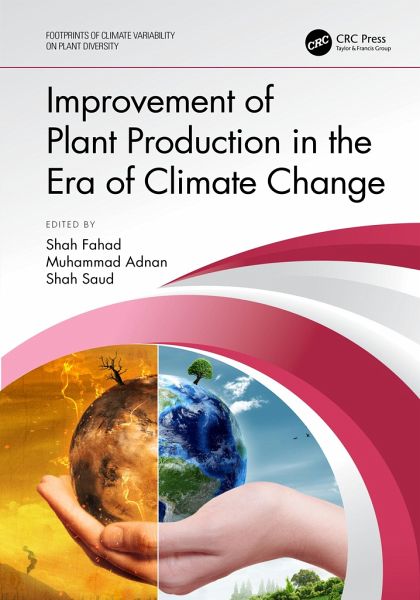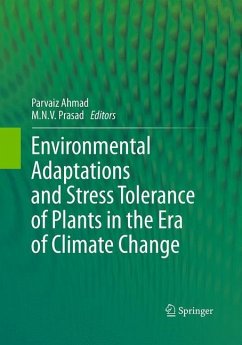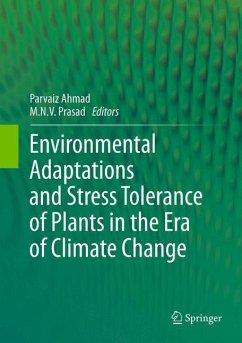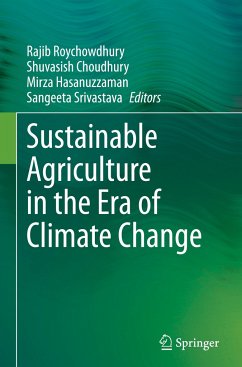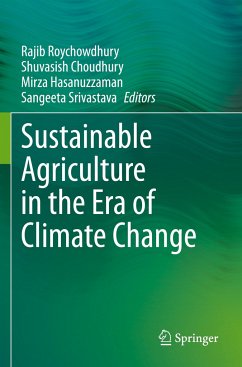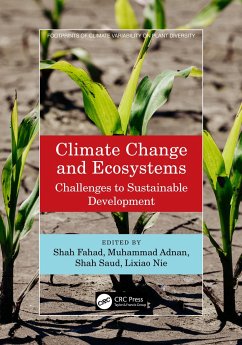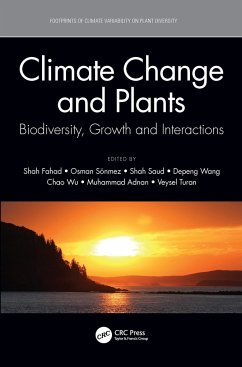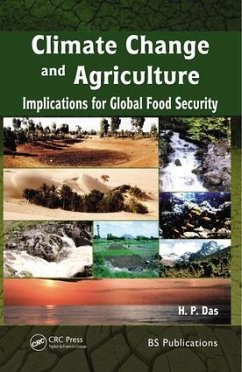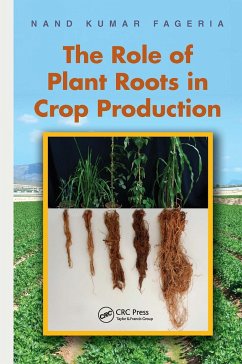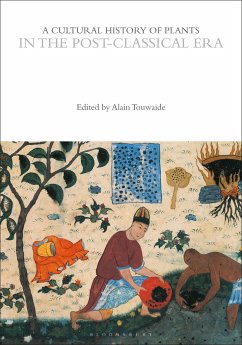Gebundenes Buch
Improvement of Plant Production in the Era of Climate Change
Versandkostenfrei!
Versandfertig in 1-2 Wochen
Weitere Ausgaben:

PAYBACK Punkte
93 °P sammeln!




This book provides a guide to the latest development of the most advanced, helps in the understanding of plant response to abiotic stress, leading to new horizons and the strategy for the current translation studies application overall solution to create a powerful production and crop improvement in such an adverse environment.
Dr. Shah Fahad is a Professor in the Hainan Key Laboratory for Sustainable Utilization of Tropical Bioresource, College of Tropical Crops, Hainan University, Haikou, China. He obtained his PhD in Agronomy from Huazhong Agriculture University, China, in 2015. After doing his postdoctoral research in Agronomy at the Huazhong Agriculture University (2015-17), he accepted the position of Assistant Professor at the University of Haripur. He has published over 332 peer-reviewed papers (Impact factor 1050.18) with more than 300 research and 32 review articles, on important aspects of climate change, plant physiology and breeding, plant nutrition, plant stress responses and tolerance mechanisms, and exogenous chemical priming-induced abiotic stress tolerance. He has also contributed 58 book chapters to various book editions published by Springer, Wiley-Blackwell, and Elsevier. He has edited eighteen book volumes, including this one, published by CRC press, Springer, and Intech Open. He won Young Rice International Scientist award, Distinguish scholar award and Top young investigator award in 2014, 2015 and 2019 respectively. He won 15 projects from international and national donor agencies. Dr. Shah Fahad name figured twice among the top two percent scientists in a global list compiled by the Stanford University, USA. He has worked and is presently continuing on a wide range of topics, including climate change, greenhouse emission gasses, abiotic stresses tolerance, roles of phytohormones and their interactions in abiotic stress responses, heavy metals, regulation of nutrient transport processes. Dr. Muhammad Adnan is a lecturer in the Department of Agriculture at the University of Swabi (UOS), Pakistan. He has completed his PhD (soil fertility and microbiology) from the Department of Soil and Environmental Sciences (SES) the University of Agriculture Peshawar, Pakistan and Department of Plant, Soil and Microbial Sciences, Michigan State University, USA. He has received his MSc and BSc (Hons) in Soil and Environmental Sciences, from Department of SES the University of Agriculture, Peshawar-Pakistan. Dr. Shah Saud is currently working as an Assistant Professor in the College of Life Science, Linyi University, Linyi, China. He received his Ph.D. in Turf grasses (Horticulture) from Northeast Agricultural University, Harbin, China. He is currently working as a Post Doctorate researcher in department of Horticulture, Northeast Agricultural University, and Harbin, China. Dr. Shah Saud has published over 125 research publications in peer-reviewed journals. He has edited five books and written 35 book chapters on important aspects of plant physiology, plant stress responses, and environmental problems in relation to agricultural plants. According to Scopus®, Dr. Shah Saud's publications have received roughly 3000 citations with an h-index of 34.
Produktdetails
- Verlag: CRC Press
- Seitenzahl: 294
- Erscheinungstermin: 20. Juli 2022
- Englisch
- Abmessung: 260mm x 183mm x 20mm
- Gewicht: 752g
- ISBN-13: 9781032260716
- ISBN-10: 1032260718
- Artikelnr.: 63657312
Herstellerkennzeichnung
Libri GmbH
Europaallee 1
36244 Bad Hersfeld
gpsr@libri.de
Für dieses Produkt wurde noch keine Bewertung abgegeben. Wir würden uns sehr freuen, wenn du die erste Bewertung schreibst!
Eine Bewertung schreiben
Eine Bewertung schreiben
Andere Kunden interessierten sich für



